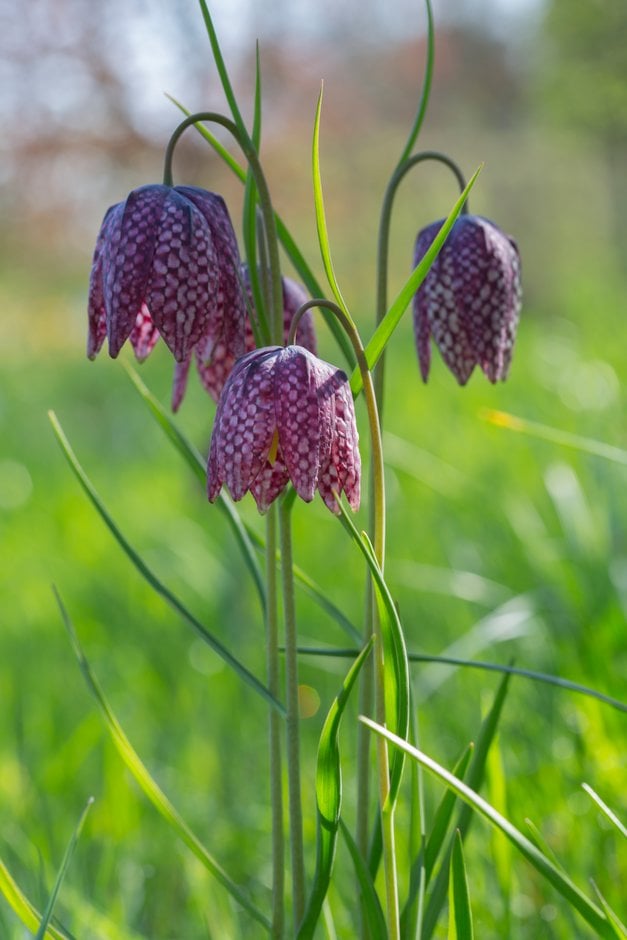Fritillaria meleagris
snake's head fritillary
A bulbous perennial to 30cm in height, with lance-shaped, greyish-green leaves and 1-2 nodding, bell-shaped purple flowers, the tepals tessellated with pale pink in a checkerboard fashion. Widely naturalised in Britain, but probably not a true native
Other common names
chequered daffodilchequered lily
see moredrooping tulip
guinea flower
guinea-hen flower
leper lily
snake heads
Size
Ultimate height
0.1–0.5 metresTime to ultimate height
2–5 yearsUltimate spread
0–0.1 metreGrowing conditions
Moisture
Moist but well–drained, Well–drainedpH
Acid, Alkaline, NeutralColour & scent
| Stem | Flower | Foliage | Fruit | |
| Spring | Pink Purple | |||
|---|---|---|---|---|
| Summer | ||||
| Autumn | ||||
| Winter |
Position
- Full sun
- Partial shade
Aspect
South–facing or North–facing or West–facing or East–facing
Exposure
Exposed or Sheltered Hardiness
H5Botanical details
- Family
- Liliaceae
- Native to GB / Ireland
- No
- Foliage
- Deciduous
- Habit
- Columnar upright
- Potentially harmful
- Ornamental bulbs, not to be eaten. Wear gloves and other protective equipment when handling. Pets: Ornamental bulbs, not to be eaten - see the HTA guide to potentially harmful plants for further information and useful contact numbers
- Genus
Fritillaria are bulbous herbaceous perennials with lance-shaped or linear leaves and nodding bell-shaped or bowl-shaped flowers that may be solitary or in racemes or umbels
- Name status
Correct
- Plant range
- Europe to W Siberia
How to grow
Cultivation
Grows well in most fertile, humus-rich, well-drained soils and prefers cool, moist summers. Handle the fragile bulbs carefully and plant at four times own depth. Suitable for rock garden, raised bed or naturalising in grass
Propagation
Propagate by seed, sown in pots in a cold frame in autumn. Needs exposure to winter cold for germination in spring. Division of offsets can be done in late summer
Suggested planting locations and garden types
- Cottage and informal garden
- Rock garden
- Wildflower meadow
- Flower borders and beds
Pruning
No pruning required
Pests
May be susceptible to slugs and lily beetle
Diseases
Generally disease-free
Get involved
The RHS is the UK’s gardening charity, helping people and plants to grow - nurturing a healthier, happier world, one person and one plant at a time.
